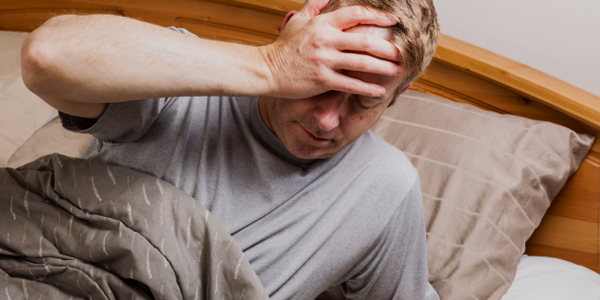According to the CDC, the most commonly diagnosed sleep disorders include insomnia, narcolepsy, sleep apnea, and restless leg syndrome. However, doctors and sleep researchers have identified dozens of different sleep disorders that stem from a wide range of factors. Here are some relatively rare sleep-related conditions you may not know about.
Exploding Head Syndrome
Though not nearly as life-threatening as it sounds, EHS is a serious condition linked to chronic fatigue. The syndrome is characterized by loud auditory hallucinations, such as gun shots or loud bangs, that occur when the subject is sleeping; in most cases, he or she will wake up screaming or otherwise agitated. While most people can recall at least one nightmare that caused them to react in this manner, those diagnosed with EHS may experience several episodes in the course of a week. The condition is rare, but people over the age of 50 are considered to be the most vulnerable; at this time, neither a cure nor an effective treatment regimen are available.
Kleine-Levin Syndrome
Hypersomnia, the chronic overabundance of sleep, can be just as detrimental as insomnia. Individuals who are diagnosed with Kleine-Levin Syndrome will experience sporadic yet persistent hypersomniac episodes, during which they sleep for up to 21 hours per day, and the condition may linger for more than a decade. Other unpleasant side effects may include mood changes, cognitive degeneration, and unusual increases in appetite (also known as hyperphagia). The syndrome is extremely rare (roughly one person in a million has been diagnosed); as a result, very little is known about the disease and currently there is no cure available.
Nocturia
Also referred to as ‘nycturia’, this condition is essentially a scientific name for the chronic urge to visit the bathroom in the middle of the night. Nocturia is closely linked to an individual’s nocturnal urine volume (NUV); unlike bedwetting, another sleep disorder that prompts people to urinate while sleeping, nocturia triggers bladder functions that eventually wake the individual ― up to three times per night, in serious cases. There is no cure for nocturia, but patients who receive this diagnosis can somewhat relieve their symptoms by avoiding caffeinated or alcoholic beverages before bedtime; compression stockings that limiting the amount of fluid buildup in the legs, thereby reducing the wearer’s overall output of urine, have also proven effective for some people.
Rapid Eye Movement Behavior Disorder (RMD)
This condition is characterized by abnormally violent behavior that occurs during a sleeping person’s REM cycle. Usually premeditated by a sudden loss of muscle atonia (also known as temporary paralysis) that results from lucid or vivid dreaming, affected individuals will punch, kick, bite, and otherwise struggle until the atonia is restored ― often at the expense of his or her bedmate. The condition is commonly found in individuals who suffer from neurodegenerative diseases, such as Parkinson’s, as well as the elderly and people who are experiencing drug withdrawals. RMD is treatable, either with prescription medications like clonazepam or with melatonin and other over-the-counter supplements.









